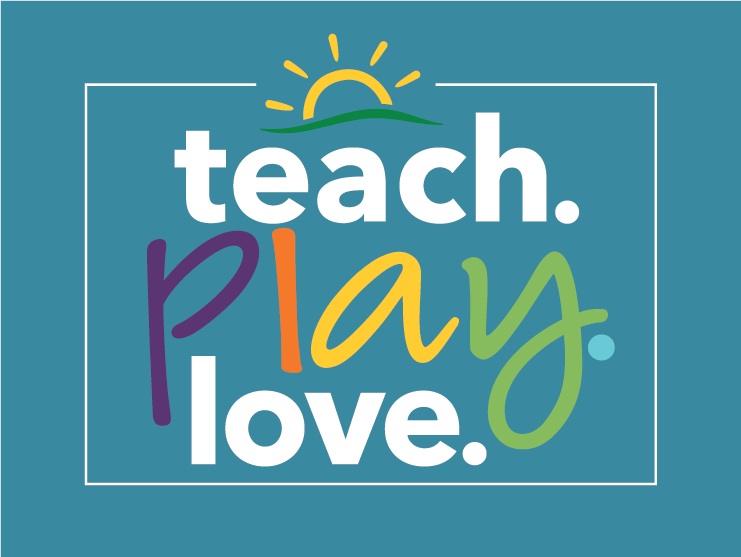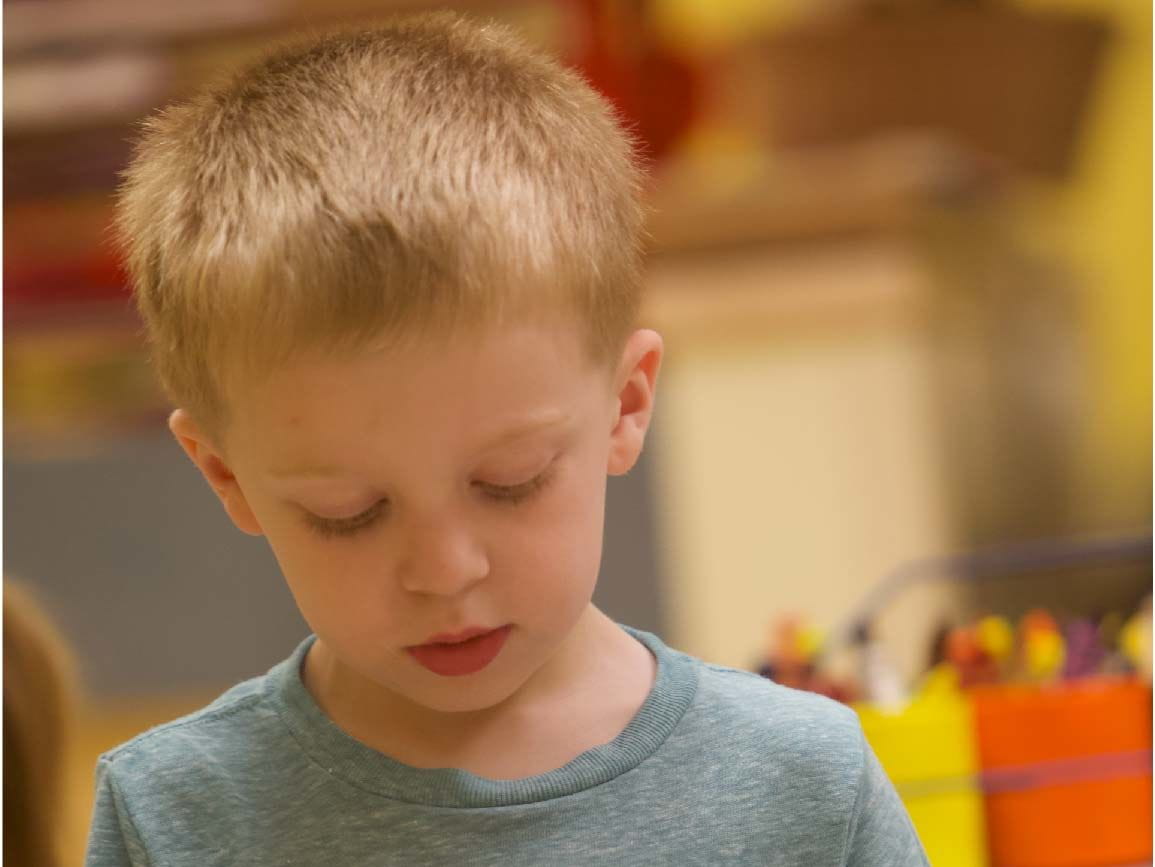Rachel: Hi, Claire, how are you?
Claire: I'm great. Hi, Rachel. I want to talk to you today about a topic that's brought up to me a lot by families, because it's really, really challenging to navigate, which is that stage of early childhood where all of a sudden the word "no," is flying around a lot. No, no, no, lots of disagreeable conversation. Lots of tough interactions. It can be really hard for parents of toddlers when that happens.
Rachel: And kids you know, when they like they first started saying it to us, we are like, "It's so cute." They sometimes like put their hands on their hip or something. I actually have a little two-year-old in my life named Leah. And she just learned how to do that. And she puts her hands on her hips. And I laughed the first time I saw her do it. And then I thought, "Oh, here we go. I'm just reinforcing it. And we're off on this path. I know where this is going."
Claire: It's really cute when they first... I can actually remember when my oldest the first time she said "no," like she thought she was just the most powerful person in the world, but quickly became not cute.
Rachel: Right. But they are that's a good point that you just made because that is what it is. It is power. And they have figured out that they have a little power in being able to say no, we react the way we would to anyone saying no, and they are growing their own convictions and are starting to have their own opinions, lots of them, have their own perspectives, and they want some control. That's a big part of development is more and more autonomy. That's a good thing. And I'll use the example of my youngest daughter, Abby, she was full of her own opinions and convictions and said "no," as much as she could. And if she said no, and we didn't agree and I thought I had talked her into a positive response, often, she just figured out how to go around me. And I would see that, I would say to myself all the time, "play the long game here, Rachel, like, this is real good stuff," her having autonomy, asserting herself, her feeling confident in that, that's going to turn out to be real good stuff when she's older.
It's real tough right now. And we're gonna have to power through this in a way that doesn't push against her that she doesn't feel confident, or heard, but also gives her the boundaries and support to make different choices with how she expresses herself. And of course, as a parent, you can make boundaries. They don't get to not do everything all the time whenever they want but I can tell you, Abby's 18 now, and I was right. I played the long game and I was right. She has such strong, powerful, beautiful convictions. Now she's standing up for herself, she knows what she believes in and that is exactly how it translated. But it's real hard when they're little to see that future.
Claire: When you are parenting a small child and they are repeatedly saying no about the food that you're serving, about the book that you've picked out at bedtime, this is the appropriate outerwear for the weather today and they say, "No, no, no." I really love that we're framing this conversation by recognizing that it's developmentally appropriate, and also a positive milestone because one of the big jobs of toddlerhood and adolescence, as we know, is separating, realizing, you know what, "I am not you, I am separate from you mom or dad or caregiver, grandma, grandpa, whoever. I am my own person. And I'm going to flex that muscle and I'm going to tell you, this is really easy word I just learned to say N-O, No, I don't want to wear my coat today. No, I do not want broccoli with my dinner. No, I do not want to go to my fifth errand of the weekend if this is no." So it's just a great way for them to have some control. But also just reminding yourself as a parent, "Okay, this is perfectly appropriate reaction for this child to be having in this situation." It's hard not to get frustrated though.
Rachel: Yeah. And we want to be careful not to tune it out too. So when you a couple of examples you shared I remember my kids both saying, "No way you're putting me in that coat," and their bodies get tense and they won't put it on and then they go outside and they get real mad that you didn't give them a coat. So it's just hard to navigate your way through it sometimes but you also want to not get so immune to it or frustrated that you can't see what they're trying to communicate. So looking behind what they're saying. Is it too many errands? That's hard. They don't have a lot of regulation. Adults get frustrated when they have to wait a long time, kids don't have that much capacity for stuff like that. They don't have any control over that day, that is legitimately frustrating. Or they have too many choices, or they're not given enough choices. So trying to figure out what's behind it and what they're seeking, they're seeking, that they can express themselves, they're seeking that they be heard that they be respected. And if you can find your way through that, and allow that find times and ways to give them choices, encourage that autonomy, you'll get fewer and fewer Nos, of course, I gave you the example of my daughter who gave me lots of Nos, but you can get fewer of them.
Claire: Yes. So let's talk about that. What do you do in that moment? So I think it's important to recognize that we are not necessarily trying to get them to stop saying no, we want them to be able to stand up for themselves and assert themselves, right? So we're not punishing the No. But we can teach boundaries about No, give them appropriate ways to express frustration, model frustration, and communicate to us always, ever, you know, their little brains are sponges. They're absorbing all the vocabulary and words that we're giving them, we can say, "Oh, I hear you're mad about that. Let me help you translate that into something that's not you just screaming 'no' in my face."
Rachel: Right, right. Yeah, really reflecting them, "I hear you. I hear what you're saying. I recognize the emotion behind it," even giving them some words about what you were just saying, like, "I see you're mad or sounds like you're frustrated to me, I get it, I recognize that." That can take a lot of the power away from that. That's what they want. They want to be heard out of that situation. They want whatever is happening to stop right now. And that helps them if you recognize it like that. But you can come back with some choices, "What you're asking for can't happen," or, "You do need to put on your jacket. But you can choose which jacket you wear." Or, "You can choose which order you want to put on your winter clothes. You started with boots first or that's fine, you have fun putting your snow pants over those boots," but let them deal with that. That's okay. They'll learn a lesson through that.
Unless you have somewhere you have to be immediately, let them work their way through those things. Give them those options in that moment. We always talk about in our programs having a yes environment. So that's something parents can translate at home too, is just thinking about all the times that they say no. And is it? Or you're saying no. Because you want to be careful as a parent that you're not saying no to them all the time, right? Because then you're modeling that that's a real good word to use, and that there's a lot of that in their life. So if you have a lot of things that you have to say no to, evaluate that as a parent. Think about...
Claire: Absolutely. If that is a point in your day, a part of your routine, or an area of your home, where it's always a battle. And I just had someone ask me about this yesterday, what if it's a safety issue, and they're saying no to me, they won't buckle their seatbelt in the car, the car seat, that's a hard line, that's a safety issue. So that's not a choice. That's what I would say, "Oh, buckling your seatbelt's not a choice. But you get to pick what song I sing while I buckle your seatbelt. Or you get to pick what station on the radio or you get to pick whether we drive to school by the park, or we drive to school on the supermarket or whatever,"just whatever option you can present to get through that tough moment. Because sometimes when they say no, you're still saying, "Oh, I hear you're saying no. You know, it's my job to keep you healthy and safe. So we have to forge ahead with this tricky moment." But there's always an opportunity to offer them a little bit of control over something else that's going on, usually.
Rachel: Exactly. Of course, as a parent, your job is to keep them safe and healthy above all else, socially, emotionally, and physically healthy. And so you have to draw those boundaries. But it also models for them that there are some times that it's not going to work, you can't always get a yes. And how do you cope with that? How do you manage that? You don't have to take care of it all for them. Choices are good way to get through it but if they have a tough emotion, they don't like the choice they're having, as long as it's developmentally appropriate, as long as it's safe, giving them choices and autonomy. That's okay. That's also a good life skill to navigate through figuring out what I do if what I asked for doesn't work out for me or if I don't get my way. Without it being a discipline issue. I liked that you brought that up. I don't want to come back to that because if we punish kids for expressing themselves, again, thinking about the long game, that shows up in ways that we don't want later on in life. If we tell kids that they don't have a voice, if we don't respect their opinion, as silly as it might be sometimes, if we don't show them there's value in that control or having some autonomy or being able to just kind of be the captain of their own ship, sometimes, we are giving them a real strong message that will be hard for them to get themselves out of and will affect them for a long time.
Claire: Yeah. I think it's also important to recognize how tough it is to be a little kid. And I don't know, I can't remember what study it was I read a while ago, but I think it's something like the average toddler hears the word no 400 times a day. That's astounding. How would you feel if you showed up to work and your coworker said no to you face to face?
Rachel: Constantly, yeah, and you don't know when your day is gonna end, you don't know, it gets to be part of your routine. I mean, that's a lot of where nos come from and why at that age, because it's a combination, it's that perfect moment between figuring out that you do have opinions and perspective and you do have something to say and feelings about it, and you have almost no control of your life. And that's what happens. That would happen to anybody that you're asserting. And they don't have a lot of options. They have one, we've helped them figure out one option, and it is to say the word no, to behave in ways that are really resistant, because that's what they have available to them. And we as adults can give them more coping mechanisms. And as they mature, as their brains develop, they'll figure out, they'll grow and hopefully, we're teaching them better ways for them to express their opinion or find their own options or solutions, their ways through that.
Claire: Yeah, absolutely. Another great strategy is to reinforce positive reinforcement when you know that oatmeal time is always a battleground of no, or getting out the door is always a battleground for the no, no, no. When you happen to have a good moment, not necessarily even a good day or a good morning, but just like a few strung together moments where there's some harmony, say, "Oh, we're having such a wonderful time getting out the door," you know, make a big deal about it, celebrate the wins. Because that's reinforcing the behavior that you want to see.
Rachel: And reinforcing things like, "Oh, I liked the choice you made. I know that was hard. I know, that's not what you wanted to do. And I saw you work really hard to do this other thing," focusing on the effort it took them, even if it didn't totally turn out, even if they melted a little bit at some point during it or they got frustrated. That effort, the more that they work on that effort, the stronger their brain development and body development will become and they'll build some of their own regulation and routines, and then they'll be able to achieve it more and more. So you just kind of have to power yourself through, you're helping them build brain structures and body structures and social-emotional abilities. And you will get through this. And the easiest way to get through it is to not meet it with frustration, but meet it with that respect and support to help them through it.





